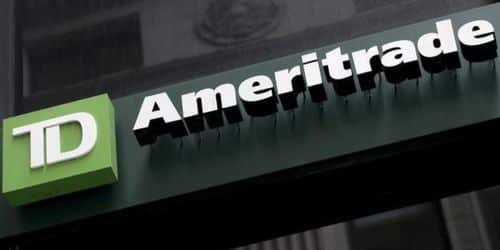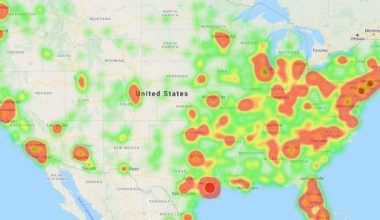Do you want to start trading? TD Ameritrade is one of the leading discount brokers in the United States, providing trading solutions in various markets. This post will describe how this company TD Ameritrade makes money.
What Is TD Ameritrade?
TD Ameritrade has been providing brokerage services to clients since 2006 when Ameritrade purchased TD Waterhouse from Toronto-Dominion Bank and renamed the merged company TD Ameritrade. It quickly became a market leader in fixed commissions and has subsequently transitioned to a no-fee trading platform for stocks, ETFs, and options. In 2020, Charles Schwab Corporation (SCHW) purchased the company. SCHW is a stock that trades on the New York Stock Exchange.
TD Ameritrade’s History
TD Ameritrade is a broker and online trading platform for stocks, options, cryptocurrency, mutual funds, and futures contracts. It also provides several cash management services.
John Joseph Ricketts, now a wealthy philanthropist, created TD Ameritrade in 1971. The Securities and Exchange Commission abolished fixed brokerage commissions in the 1970s. TD Ameritrade, previously known as Omaha Securities, was one of the first big brokerage firms to deviate from the norm and provide lower commissions.
In the decades that followed, the company maintained its pioneering culture. In 1988, it was the first to offer touch-tone phone trading. After acquiring K. Aufhauser & Co. six years later, it was involved in the first internet trade. In the late 1990s, TD Ameritrade aided in the growth and improvement of internet trading for self-directed clients. It began to provide features that modern investors expect, such as online options order input, extended trading hours, and electronic, email-based trade confirmations.
TD Ameritrade remains a success story in the modern era. It manages over 11 million client accounts with assets worth more than $1 trillion.
The Business Model of TD Ameritrade
TD Ameritrade is a cheap brokerage firm that rivals E*Trade, Legg Mason, BlackRock, and Pershing. For trades, discount brokerage firms impose a set minimum fee. In the case of TD Ameritrade, numerous stocks, ETFs, and options can be acquired with no commission or cost. The company makes money by facilitating various trades and through margin lending.
TD Ameritrade is a bargain brokerage with over 11 million members and one of the country’s largest discount firms. TD Ameritrade has more than $1 trillion in assets under management for the fiscal year 2020.
The company currently allows investors to buy and sell:
- Typical stocks
- Preferred securities
- Contracts for future delivery
- ETFs are exchange-traded funds.
- Forex \sOptions
- Investing in mutual funds
- Investing in fixed income
The corporation also makes investors with margin accounts through which it earns money on extended credit and cash management services. It also offers complete brokerage services to some investors.
How Does TD Ameritrade Make Money?
TD Ameritrade has been operating for nearly 50 years, generating billions of dollars in sales yearly. Their revenue may have taken a hit when they imposed $0 commissions in 2019, yet their firm is still running today. We’ll discuss how all this is possible and how TD Ameritrade makes money without commissions.
#1. Payment For Order Flow
Receiving payment for order flow is one of the primary ways TD Ameritrade makes money. In summary, TD Ameritrade is compensated by specific market makers for routing orders to them rather than other market makers. With the dramatic surge in stock market trading volume from retail traders in recent years, TD Ameritrade has made hundreds of millions of dollars in order flow payments alone.
Payment for order flow has become a highly contentious issue in recent years. On the other hand, brokers such as TD Ameritrade make money by receiving payment for order flow, a totally legal and highly regulated operation.
#2. Investing Client’s Idle Cash
Banks make money by investing their clients’ money, paying them a tiny percentage of the returns on the investments in interest, and retaining the remainder as profit. Brokers, including TD Ameritrade, operate similarly to banks. Brokers are heavily regulated, and TD Ameritrade has a fiduciary duty to keep client funds distinct from its owner.
Despite this, brokers like TD Ameritrade find ingenious methods to fulfill their fiduciary duty of properly storing idle customer cash while still investing and using it to create money for themselves.
#3. Stock and ETF Transaction Commissions
TD Ameritrade does not charge charges on much online stock and ETF trading. However, they do charge costs on other deals. When you examine their commission schedule, you will notice that they are undoubtedly generating revenue from traders that use their platform.
The $0 commission trades’ fine print specifies that the $0 commission only applies to online trading on US exchange-listed equities and ETFs. Over-the-counter (OTC) equities, in which many people trade, carry a $6.95 commission for each trade.
TD Ameritrade imposes costs for broker-assisted trades in addition to internet commissions. A broker-assisted exchange occurs when TD Ameritrade places a deal for you rather than you placing it online. Their broker-assisted commissions include a $25 fee on all stock, ETF, and options trades.
#4. TD Ameritrade Makes Money From Fixed Income Fees
Expect to pay obvious or hidden fees on fixed-income trades unless you acquire new issue treasuries at auction. TD Ameritrade imposes a $1 fee per bond or CD for online transactions on the secondary market. If you have one of TD Ameritrade’s Fixed Income Specialists place a fixed income trade for you, you will incur additional fees that are not disclosed on their website.
TD Ameritrade may operate primarily in fixed-income trades, which means they are trading with you from their inventory. Purchases may be marked up, and sales may be marked down in this situation so that TD Ameritrade profits from the transactions. These markups and markdowns are more of a hidden fee because they are not visible as commissions but are included in the rates you provide.
#5. Other Transaction Fees
TD Ameritrade offers trading in over 6,000 mutual funds, with more than half having no buy-side transaction cost. The other half of the funds may charge a processing fee of $49.95 or $74.95 for every purchase, depending on the fund. Even free-to-buy funds have a conditional short-term redemption cost of $49.99 per sale if sold within 180 days of acquisition.
Online options trades do not incur a per-trade commission; however, TD Ameritrade imposes a fee of $.65 per option contract for both buys and sells. TD Ameritrade charges a $2.25 fee per contract for futures and options on lots. Forex trades do not incur fees; nevertheless, TD Ameritrade imposes a processing fee on each transaction, which is included in the bid/ask spread.
#6. TD Ameritrade Profits from Margin Interest
Because of the cheap expenses of lending money to investors, margin interest revenue can be tremendously profitable for TD Ameritrade. The published margin rates at TD Ameritrade now range from 8.25% to 10.25%. Because all margin loans to clients are collateralized by their cash and securities, margin loans are a source of revenue for TD Ameritrade with potentially large yields and relatively minimal risk.
#7. Program for Collateral Lending
Clients commonly use margin loans for trading. However, TD Ameritrade also makes money from other types of loans they offer clients. TD Ameritrade provides lines of credit and fixed-rate loans through its collateral lending program. These loans cannot be utilized for trading, but they function similarly to margin loans in that the debt is collateralized against a client’s portfolio.
A TD Ameritrade line of credit allows the borrower to borrow against their portfolio whenever needed and has an interest rate ranging from 2.5% to 5.0%, depending on the amount borrowed. A fixed-rate loan from TD Ameritrade provides a borrower with a lump sum that must be repaid in monthly installments. For fixed-rate loans, TD Ameritrade works with clients on an individual basis. They do not post their fixed-rate loan interest rates on their website, but you can bet that they set the interest rates to include ample margin for profit.
#8. TD Ameritrade Profits from Market Data Subscriptions
TD Ameritrade provides outstanding free market data to clients, including free real-time and level-2 quotes. Furthermore, they make money by offering two different memberships that give clients a wealth of market research and stock analysis. Subscriptions start at $9.99 per month and go up to $19.99 per month. Even if TD Ameritrade only has 10,000 users for the $9.99 per month subscription, they will make more than $1 million per year from this product.
#9. TD Ameritrade Profits from Miscellaneous Fees
TD Ameritrade earns money through a vast number of miscellaneous fees. A $38 voluntary tender offer cost, a $2 per month print statement fee, a $75 outbound complete account transfer fee, and a $25 returned check fee are among the items on the list. Some prices are far more profitable than others, but when these relatively minor fees are charged hundreds or millions of times each year, the aggregate earnings can quickly pile up.
What is the Future Growth of TD Ameritrade
TD Ameritrade is continuously monitoring changing market patterns as a global discount trading leader. Its implementation of commission-free trading occurred shortly after Charles Schwab’s statement in the same direction.
TDA hopes to attract more traders to its platform by providing powerful charting packages and various beneficial services. The acquisition of TD Ameritrade by Charles Schwab for $22 billion in all stock in 2020 resulted in substantial growth in the company’s customer base.
When the merger was completed in October 2020, the combined business had $6 trillion in assets under management and over 28 million brokerage accounts. The company intends to continue its transformation of the retail trading arena by providing its clients with services and market navigation solutions.
According to senior management, the company aspires to provide a winning combination of low prices, industry-leading technology, and great client and advisor service.
Who are the Competitors of TD Ameritrade?
TD Ameritrade provides affordable brokerage services as well as commission-free trading. As a result, it is not a rival to brokers that still charge commissions, such as LightSpeed and Center Point.
On the other hand, TDA is currently focusing on the millennial and Zoomer trading segments, which have the most growth potential for the company. Online-only brokers like WeBull, Robinhood, E*TRADE, and M1 Finance are rivals.
Is TD Ameritrade Trustworthy?
TD Ameritrade is a big brokerage firm in the United States. Founded in 1971, they now have over 11 million clients, handle over $1 trillion in assets, and conduct 500,000 deals daily.
Established \s1975
Available Country
$2.7 billion in assets managed solely in the United States
TD Ameritrade’s Taxation Policy
When selling equities owned for one year or less, investors face short-term capital gains, which are taxed at ordinary income tax rates. Long-term capital gains are taxed at rates ranging from 0% to 20% of total taxable income.
Conclusion
TD Ameritrade is a brokerage that makes commission-free trading on most stocks but earns money on other product trades, transaction facilitation, and margin lending. Before purchasing a stock, investors should conduct due research on the firm. There are additional ways that TD Ameritrade makes money, but maybe you gained some fascinating insights into how TD Ameritrade makes money through the methods we examined. Between all TD Ameritrade offers and the fees levied, TD Ameritrade gives a terrific overall value to clients. They manage to deliver value to clients while also reaping enormous profits.
Related Articles
- BEST INVESTMENT COMPANIES IN 2023
- HOW ROBINHOOD MAKES MONEY: Their Business Segment & Process
- Stock Trading For Beginners: Best Sites For Beginners (Detailed Guide)
- FOREX TRADING APPS: 5+ Best Trading APPS To Use
- SELL TO OPEN: Overview with option trading examples






